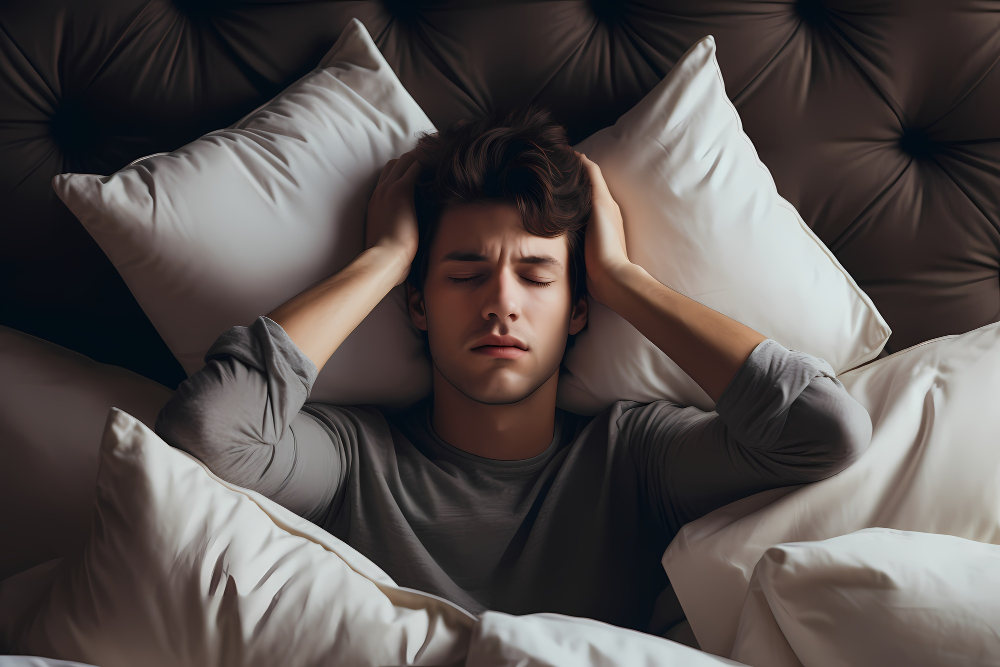Insomnia, a common sleep disorder characterized by difficulty falling asleep, staying asleep, or experiencing non-restorative sleep, can significantly impact one’s quality of life and overall well-being. While medication may provide temporary relief, cognitive behavioral therapy (CBT) has emerged as a highly effective and sustainable treatment for insomnia, addressing the underlying causes and promoting long-term improvements in sleep quality. In addition to CBT, several other treatment options and lifestyle modifications can help individuals overcome insomnia and achieve restful sleep. Let’s delve into these strategies and explore how they can be combined to create a comprehensive approach to managing insomnia.
1. Cognitive Behavioral Therapy for Insomnia (CBT-I): CBT-I is a structured, evidence-based therapy that targets the cognitive and behavioral factors contributing to insomnia. It involves several components, including:
- Cognitive Restructuring: Identifying and challenging negative thoughts and beliefs about sleep and replacing them with more adaptive and realistic ones.
- Sleep Restriction: Restricting the time spent in bed to match the individual’s actual sleep duration, thereby increasing sleep efficiency and consolidating sleep.
- Stimulus Control: Establishing a strong association between the bed and sleep by limiting activities in bed to sleep and sex only, thereby strengthening the bed-sleep connection.
- Relaxation Techniques: Incorporating relaxation techniques such as progressive muscle relaxation, deep breathing exercises, and guided imagery to reduce physiological arousal and promote relaxation before bedtime.
CBT-I aims to reframe negative sleep-related thoughts, modify maladaptive sleep behaviors, and promote healthier sleep habits, ultimately leading to long-term improvements in sleep quality and duration.
2. Sleep Medications: While medication is not typically the first-line treatment for chronic insomnia, it may be prescribed in certain cases to provide short-term relief. Common medications used to treat insomnia include sedative-hypnotics such as benzodiazepines and non-benzodiazepine receptor agonists (e.g., zolpidem, eszopiclone). However, it’s essential to use these medications judiciously and under the guidance of a healthcare professional, as they can be habit-forming and may lead to dependency if used long-term.
3. Light Therapy: Light therapy, also known as phototherapy, involves exposure to bright artificial light, typically in the morning, to regulate the body’s internal clock and improve sleep-wake patterns. Light therapy is particularly beneficial for individuals with circadian rhythm disorders such as delayed sleep phase disorder or shift work sleep disorder.
4. Relaxation Techniques: Incorporating relaxation techniques into your bedtime routine can help calm the mind and body and promote relaxation before sleep. Techniques such as progressive muscle relaxation, deep breathing exercises, mindfulness meditation, and guided imagery can reduce stress and anxiety levels, making it easier to fall asleep and stay asleep.
5. Sleep Hygiene Practices: Practicing good sleep hygiene is essential for optimizing sleep quality and duration. This includes establishing a consistent sleep schedule, creating a relaxing bedtime routine, maintaining a comfortable sleep environment, limiting caffeine and alcohol intake, and avoiding stimulating activities and electronics before bedtime.
6. Herbal Supplements and Alternative Therapies: Some individuals may find relief from insomnia symptoms through the use of herbal supplements and alternative therapies. Common supplements used to promote sleep include melatonin, valerian root, chamomile, and passionflower. However, it’s important to consult with a healthcare professional before trying any herbal supplements or alternative therapies to ensure they are safe and appropriate for your individual needs.
In conclusion, overcoming insomnia requires a multifaceted approach that addresses the underlying factors contributing to sleep disturbances. Cognitive Behavioral Therapy for Insomnia (CBT-I) has emerged as a highly effective treatment option, offering lasting improvements in sleep quality and duration. In addition to CBT-I, other treatment options such as sleep medications, light therapy, relaxation techniques, sleep hygiene practices, and herbal supplements can complement each other to create a comprehensive approach to managing insomnia. By incorporating these strategies into your daily routine and seeking guidance from a healthcare professional, you can take proactive steps towards achieving restful and rejuvenating sleep.
